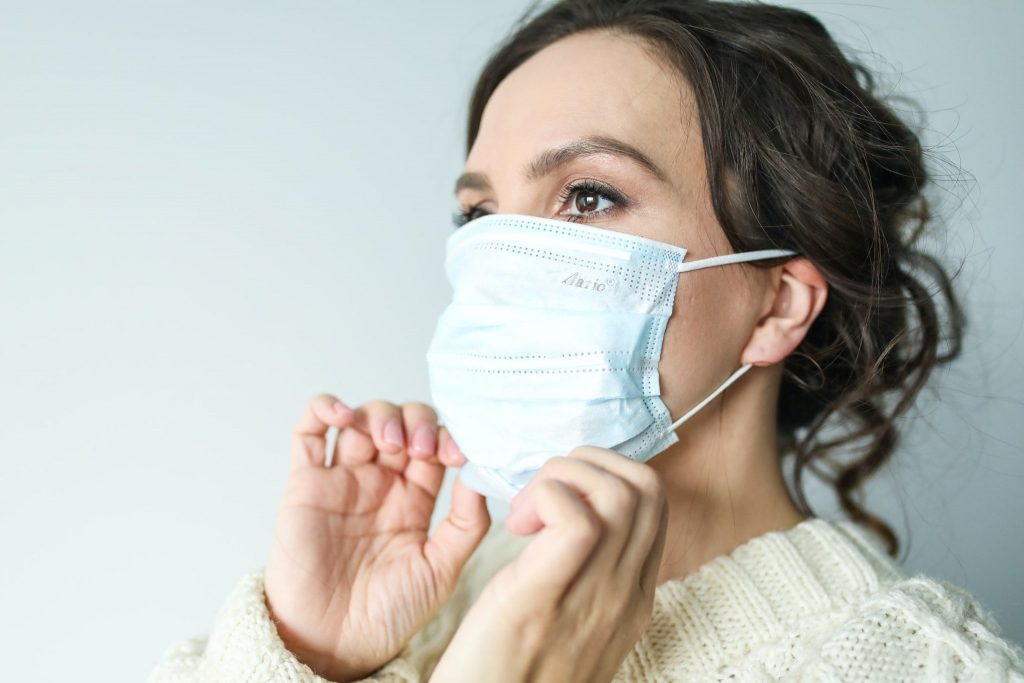Legal requirements to wear face coverings on public transport and most indoor public settings will be replaced with guidance in the coming weeks, First Minister Nicola Sturgeon announced today.
From Monday the legal requirement to wear a face covering in places of worship or while attending a marriage ceremony, civil partnership registration, funeral or commemorative event will end.
The requirement to wear face coverings in other indoor areas such as retail spaces and public transport will become guidance on 18 April.
The most recent ONS Covid infection survey – for the week ending 20 March – indicated that one in 11 people in Scotland had Covid, with daily case figures suggesting case numbers are high but may be stabilising.
The First Minister told Parliament that the very high level of infection and ongoing pressure within the NHS had been taken into account when making the decision, and that data will continue to be assessed closely.
She said: “We will, of course, continue to encourage the wearing of face coverings in certain indoor places, especially where significant numbers of people are present.
“This phased approach strikes, I think, a sensible balance between our desire to remove this one remaining legal measure, and the common sense need for continued caution – not least for the sake of the NHS – while this wave of infection does subside.
“I recognise that face coverings are an inconvenience. However, given all the sacrifice of the past two years, and in view of the current pressure on the NHS, I believe the vast majority of people will accept that for a further two weeks this is a proportionate precautionary measure while we pass the peak of this latest wave. It also of course provides some additional protection to those who are most at risk from the virus.”
Background
It was confirmed earlier this month that people without COVID-19 symptoms will no longer be asked to take regular lateral flow tests from 18 April. The change forms part of the Test and Protect Transition Plan, which sets out how testing will become more targeted, with the aim of reducing serious harm from COVID-19.
The changes to Test and Protect mean that from 18 April:
- most people without symptoms will no longer be asked to take COVID-19 tests
- free lateral flow devices (LFDs) for the purposes of twice weekly routine testing will no longer be available for the general population given the changing advice, but will continue to be free for any purpose for which testing continues to be advised – for clinical care, for health and social care workers and for people visiting vulnerable individuals in care homes or hospitals
- until the end of April, people with symptoms should still isolate and get a PCR test
- vaccinated close contacts of someone with COVID-19 should continue to test daily for seven days with LFDs
People who have symptoms of COVID-19 will still be able to book PCR tests in the usual way until 30 April. From that date, test sites will close and people with symptoms will no longer be advised that they need to seek a test. The public health advice for people who feel unwell will be to stay at home until they feel better, to reduce the risk of infecting other people.





